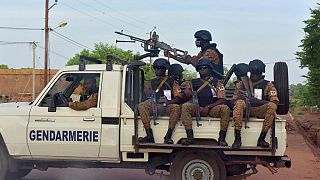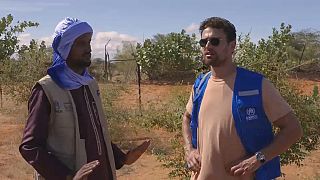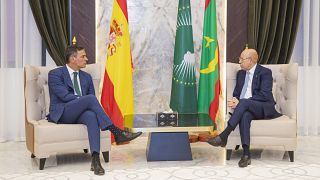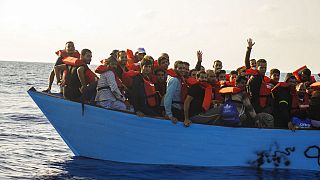Mauritania
The United States is the only country in the Sahel that has not been hit by attacks since 2011, with four jihadists escaping from a prison in Nouakchott on Sunday evening, killing two police officers.
"At 9 pm on 5 March 2023, four terrorists managed to escape from the central prison in Nouakchott after attacking the guards, which led to an exchange of fire during which two members of the National Guard" died and two others were slightly injured, the Interior Ministry said in a statement.
The identities of the fugitives have not been disclosed.
Two of them had been sentenced to death, and the other two are awaiting trial for membership in a terrorist organisation, according to a military official who requested anonymity.
The same source said their vehicle had been found northeast of Nouakchott.
The death penalty has not been applied in Mauritania since 1987.
- Tracking -
"The National Guard has strengthened its control over the prison and has immediately begun tracking down the fugitives in order to arrest them as quickly as possible," the ministry said, calling on citizens to provide any information that could contribute to their capture.
The population's cooperation in the fight against jihadism is part of the security mechanism that keeps the country safe from jihadism, which continues to spread among its Sahelian neighbours.
While neighbouring Mali has been counting its dead since a jihadist insurgency began in 2012, Mauritania, with a population of four million, has not seen an attack on its soil since 2011.
However, these movements regularly targeted it in the 2000s, including attacks and targeted kidnappings.
Mauritania, along with Burkina Faso, Niger and Chad, is part of the G5 Sahel, which Mali left in 2022, and its joint anti-jihadist force supported by France, the United States and the UN. Paris claims significant security and defence cooperation with Nouakchott, in addition to development.
The Mauritanian authorities are investing in training and working to retain soldiers: increased budgets, new equipment, salaries paid to the bank, and social support for the military.
- Dialogue -
Mauritania also advocates dialogue to win the battle of minds.
As early as 2010, a dialogue was organised between the main ulama and around 70 jihadists in prison. The religious leaders convince about fifty of them to repent. Among them, some are sent on television, to mosques, to preach to young people that jihad is not the right way.
More than 500 imams are recruited, and young people leaving the mahadras (traditional Islamic schools) are offered professional training.
More recently, in 2022, Mauritanian President Mohamed Ould Cheikh El Ghazouani pardoned eight prisoners convicted of "terrorism" in a bid to "fight" extremism through "dialogue", according to the official news agency.
Mauritania has repeatedly organised dialogue sessions with its jihadist prisoners since former president Mohamed Ould Abdel Aziz (2008 to 2019), to obtain their repentance and reintegrate them into social life. About thirty of them had already benefited from this.











01:40
Kenya cancels airport and energy deals with Adani group after the U.S. indicts the tycoon
Go to video
Fugitive Zambian MP Emmanuel Jay Banda arrested in Zimbabwe after three-month Manhunt
Go to video
Spain to offer residency and work permits to undocumented migrants
Go to video
Archbishop of Canterbury will end official duties in early January amid sex abuse scandal
Go to video
Congo opposition leaders call for protests against president's plan to change constitution
Go to video
At least 7 members of Nigerian security force missing after insurgents ambush convoy